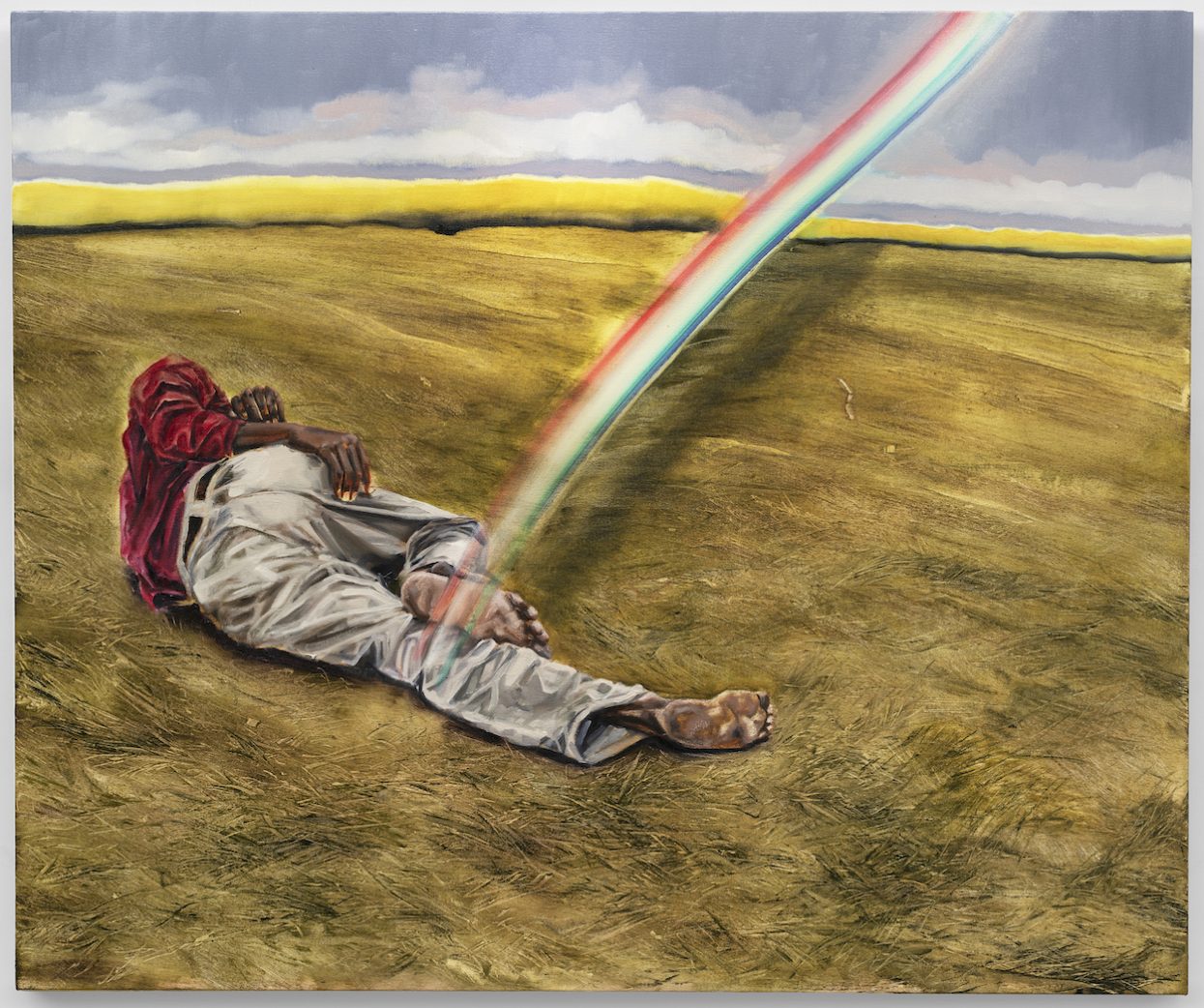Here, we ask an artist to frame the essential details behind one of their latest works.
Bio: Antonio Obá, 39, Brasília.
Title of work: Orev – pouso (Orev – landing), 2022.
Where to see it: “Outras águas / Other waters” at Mendes Wood DM (47 Walker St, New York) until Jan. 21.
Three words to describe it: Memory, spirituality, solitude.
What was on your mind at the time: In general, the initial feeling that motivates me to create a work brings forward other sensations and thoughts during the production process. That’s because I allow myself to indulge in the feelings that emerge during the elaboration of a painting—both in an emotional and physical sense. Other times, the painting reveals its true content after I’m finished with it, which leaves me a little distant from its presence. It wasn’t any different with this one. I was initially thinking about concepts related to spirituality that are part of our earthly and material existence.
Days after, reflecting upon the composition of the painting, and upon what I felt being here in NY throughout various days and across different seasons, I found myself within the image of a resting leaf that surrenders itself to the ground in the beautiful melancholy of autumn. It’s obvious that a painting can and should mean more, but this is one of the aspects that I choose to talk about.
An interesting feature that’s not immediately noticeable: When I mentioned the concept of this invested spirituality, I took the symbolism of the rainbow in our collective imagination as a starting point: the rainbow as this bridge, portal, and gateway that connects heaven and earth. There is a certain transcendental dimension in this that interests me, a search for spirituality that doesn’t need to be disconnected from the material world but rather lends itself to the possibility of encountering what’s physical, of a body that’s real and fragile, a body that can touch and be touched.
It reminds me of an episode in the Divine Comedy in which Dante is identified as a living body simply because his body could cast a shadow, which, within this framework, would’ve been something impossible to happen with a soul, void of materiality. The way I found to portray this spirituality amongst us was through the shadow of the rainbow projected onto the floor, testifying to its immanent transcendence. Light, after all, is not an immaterial but a physical occurrence.
How it reflects your practice as a whole: I believe it reflects my complete self-willingness and devotion to my work. As this is a process subject to memory (and our memories are constantly reinventing themselves), to sensations, to reflections about what we hear, say, and feel, it requires me to be completely connected to my work in a constant re-evaluation of my practice through each stroke, color, and layer, until it reveals itself completely.
One song that captures its essence: A Rota do Indivíduo (Ferrugem) by the Brazilian composers Orlando Morais and Djavan, and sung by Djavan himself.

